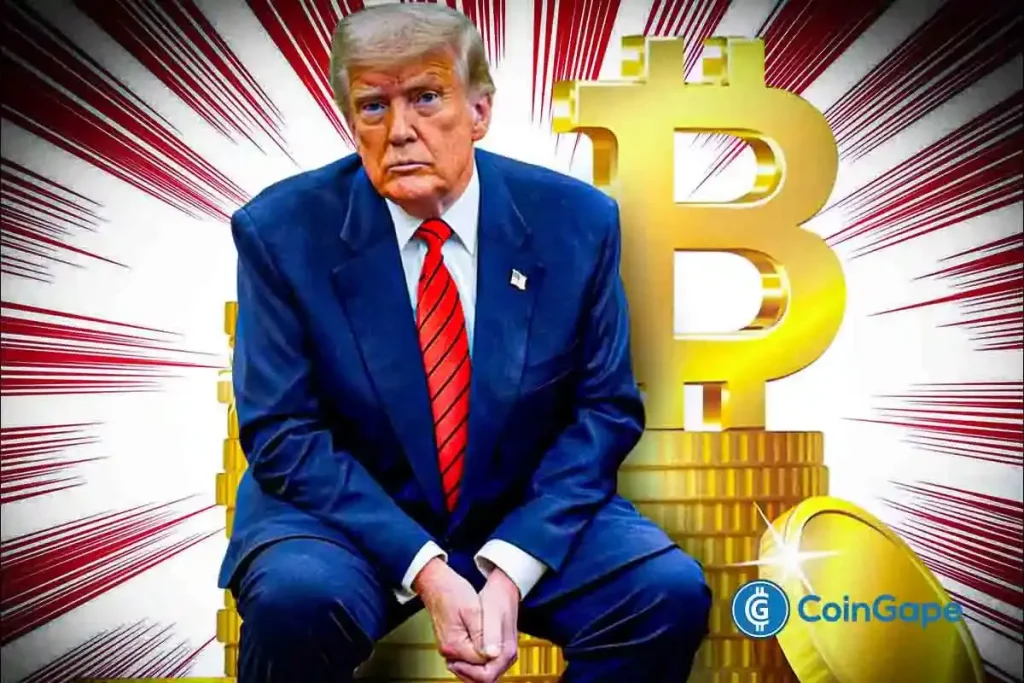Bitcoin Price Resilience: Analyzing Market Dynamics Amidst Equity Corrections
In recent weeks, the Bitcoin price has demonstrated remarkable resilience, particularly as traditional equity markets undergo significant corrections. This has drawn attention from both investors and analysts alike. However, many financial experts caution that Bitcoin’s current stability may be short-lived. A report from Matrixport suggests that Bitcoin, often viewed as a premiere cryptocurrency, is likely to reflect the movements of the stock market, especially with the impending announcement of Donald Trump’s tariff plans targeting several countries including China, Canada, and Mexico.
Bitcoin and Its Correlation with Stock Markets
The relationship between Bitcoin and traditional equity markets has become increasingly pronounced, particularly during periods of financial volatility. Analysts like Markus Thielen from Matrixport have emphasized that upcoming announcements related to tariffs could signal increased price fluctuations for Bitcoin, a digital asset that has previously shown sensitivity to macroeconomic factors. Currently, Bitcoin funding rates are only slightly positive, and retail trading volumes have dropped to levels not seen since the summer of 2024. This decline suggests a climate of caution among investors, potentially stifling major trading activity. The apprehensive market sentiment hints at possible price movements for Bitcoin that could closely align with shifts in equity values.
The Impact of Trump’s Tariff Plans on Bitcoin
As Donald Trump prepares to unveil his tariff strategies, market observers are keen to understand how these measures will affect Bitcoin and other cryptocurrencies. The imposition of tariffs on major economies could exacerbate the existing trend of investors retreating from risk-sensitive assets, including cryptocurrencies. This is particularly critical as such moves aggravate correlations between digital currencies and traditional market securities, making cryptocurrencies like Bitcoin more susceptible to macroeconomic changes. As CoinPanel CEO Aran Hawker notes, the recent risk-off sentiment, heavily influenced by the Nasdaq, serves as a benchmark for expected repercussions within the digital asset market.
Bitcoin’s Future Following Tariff Announcements
Bitcoin’s price trajectory has been highly volatile in the recent past, having hit an all-time high of $108K before dipping below $80K. The forthcoming tariff announcements may significantly impact the cryptocurrency’s performance, with analysts predicting a potential downturn. Many believe that the correlation with equity markets will continue to drive Bitcoin’s price volatility, making it precarious for investors. However, some industry experts assert that this upheaval may ultimately foster Bitcoin’s long-term growth, particularly positioning it as a possible alternative to traditional safe havens like gold.
The Dual Narrative on Bitcoin as ‘Digital Gold’
The discussion surrounding Bitcoin as a ‘digital gold’ encapsulates contrasting opinions among analysts and investors. Columbia Business School professor Omid Malekan suggests that Bitcoin’s recent developments could elevate its status as a viable alternative to gold, especially during uncertainty in traditional markets. In contrast, prominent Bitcoin critic Peter Schiff dismisses this narrative, arguing that Bitcoin’s high volatility and inherent risks negate its potential as a safe asset. This divide reflects larger tensions within the crypto community and presents critical considerations for investors contemplating Bitcoin as part of their portfolios.
Concluding Thoughts: Navigating Uncertainty and Opportunity
Despite the current market dynamics and caution surrounding Bitcoin, there remains a dual-edge narrative in the cryptocurrency landscape. Bitcoin’s correlation with traditional equity markets highlights both the risks and potential rewards for investors as macroeconomic factors continue to shape asset valuations. While impending tariff announcements introduce uncertainty, they may also provide avenues for strategic investment as Bitcoin fights for recognition as a modern store of value. Thus, participants in the cryptocurrency market should maintain a balanced perspective, weighing the influence of traditional economic trends against the unique opportunities that digital assets present.
As the situation unfolds, prudent investment strategies will be paramount. Keeping an ear to the ground on macroeconomic developments, like Trump’s tariffs, and their ramifications for Bitcoin could support informed decisions in this fast-paced financial landscape. Ultimately, while Bitcoin’s current resilience is noteworthy, understanding the intricate relationships within global markets will be critical for navigating the volatility ahead.


